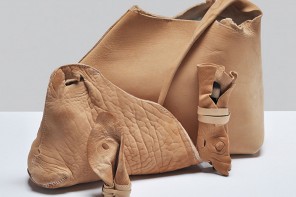Low-cost U.S. airline, JetBlue which overhauled its uniforms in June, announced recently that it has donated more than 18.5 tons of used uniforms, clothing, and fabric to organizations such as Planet Aid, a nonprofit that recycles unwanted garments to fund sustainable development in Africa, Asia, the Caribbean, and Latin America.
Loomstate, the label behind America’s “most transparent” T-shirt, helped JetBlue collect an average of eight clothing items per uniformed crew member in over 60 cities.
Of the 37,000 pounds of textiles collected, roughly 11,538 pounds were earmarked for reuse as clothing. Another 25,462 pounds, including regulated uniforms, were shredded at special facilities in Arizona or Massachusetts, where they’ll find new life as upholstery filling or building insulation.
“At JetBlue, as soon as we decided to introduce new uniforms, we were thinking about how to reuse the old fabric, and filling local landfills was not an inspiring option. In a landfill, clothing releases methane, a harmful greenhouse gas. We wanted to avoid those unnecessary emissions just like we do with our fleet of modern aircraft and environmentally-efficient engines,” says Sophia Mendelsohn, JetBlue’s head of sustainability, in a press release. “Our core business is flying airplanes. When it comes to recycling fabric we knew we would need a partner such as Loomstate to show us how the extensive market of fabric recycling works.”
Even garments that are frayed, worn, or stained have their use. “Fabric can have a second life. For example, old sweaters can be used as stuffing in baseballs and softballs, jeans can be converted into insulation for cars or houses, and the soles of shoes can be repurposed into paving materials,” says John Nagiecki, Planet Aid’s director of communications. “Reusing the materials in clothes means fewer new fibers have to be produced and it ultimately lessens the amount of pesticides and water used in the growing process.”
Americans throw away more than 13.1 million tons of textiles each year, according to the U.S. Environmental Protection Agency, more than 85 percent of which end up in landfills.
Source and image: Ecouterre











